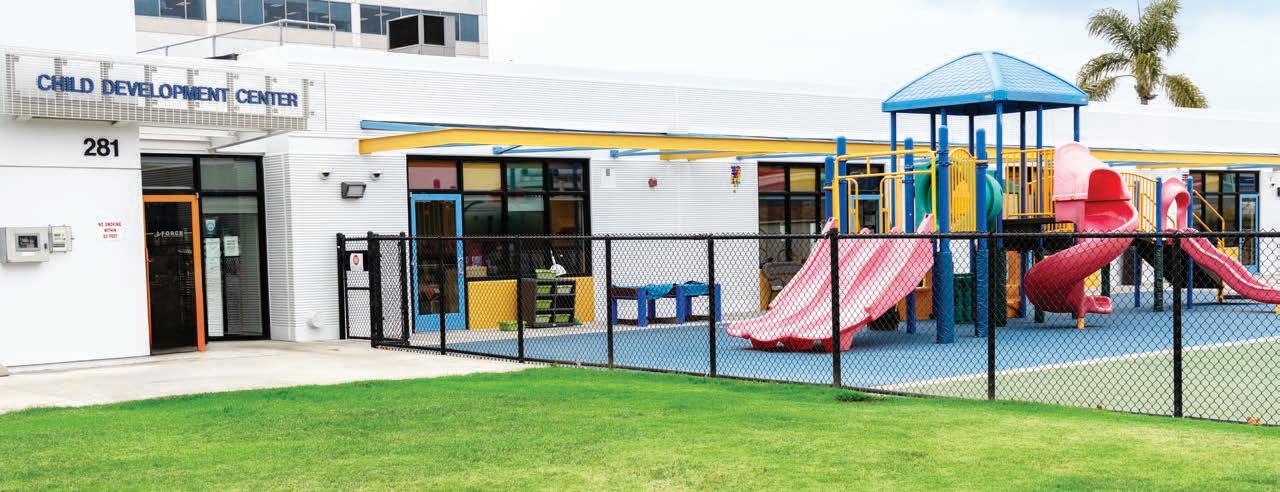

Parent Handbook
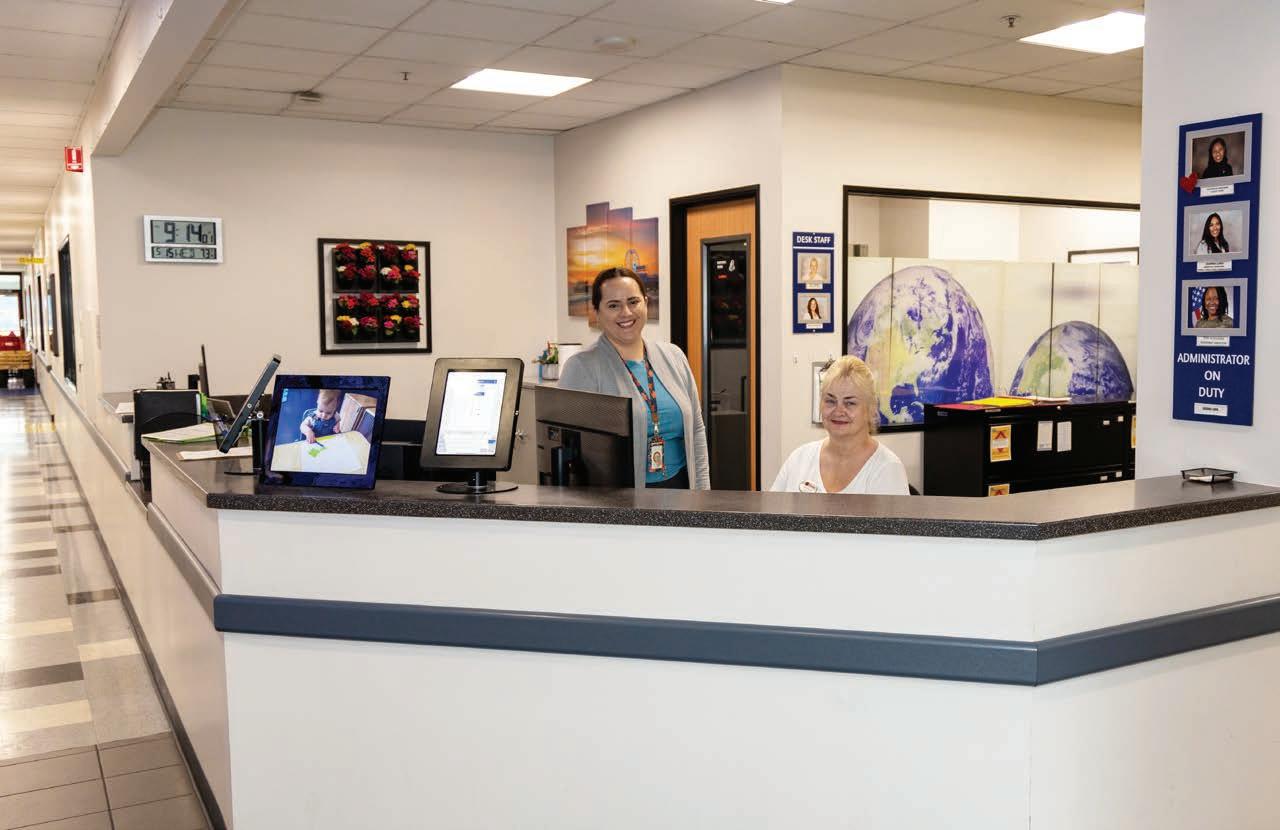
Welcome to the Los Angeles AFB Child Development Center
Introduction
Welcome to the Los Angeles AFB Child Development Center (CDC). Thank you for entrusting your child to our care. This handbook is designed to provide you with an overview of the processes and procedures of the Los Angeles AFB CDC.
The LAAFB CDC stands behind our commitment to provide the best developmental experiences for your child. Our curriculum is designed to meet the cognitive, creative, language, social, and physical needs of each individual child. We are proud of what we have to offer you and your child. As always, your ideas for changes and improvements are welcome. Your support and active participation in our program help us to provide high quality care for young children. Once again, thank you for the opportunity to be involved in your child’s development. Our program maintains an open-door policy encouraging parents to communicate to staff and the Directors all ideas, suggestions, and concerns. Quality childcare is the result of a strong partnership between the families and the program. We look forward to working with you to provide the best possible care for your child.
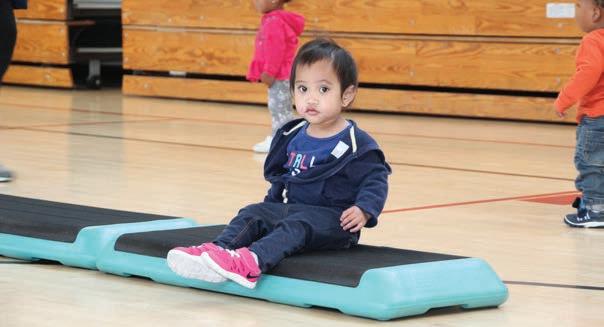
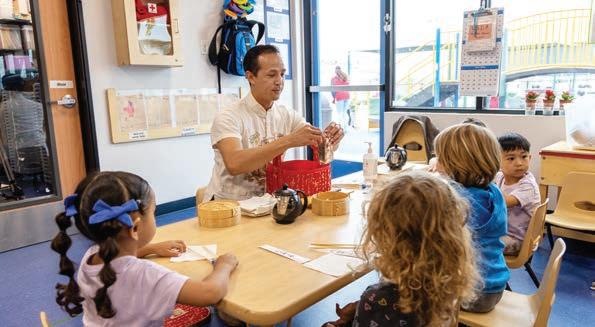
Mission & NAEYC
Mission Statement for Child and Youth Programs
Assist military and civilian personnel in balancing the competing demands of the mission and family life through delivery of a system of quality, available and affordable programs and services for eligible children and youth from birth through 18 years of age.
National Association for the Education of Young Children (NAEYC) Accreditation
Every child deserves access to high-quality early learning experiences. The Los Angeles Air Force Base CDC is an NAEYC-accredited early learning program exceptionally well equipped and meticulously measured for indicators of quality in the classroom and beyond. From guidelines for teacher preparation through safety standards. Being NAEYC Accredited ensures that programs are safe, well prepared, and intentional about ensuring children’s success. The LAAFB CDC undergoes NAEYC Accreditation every five-years. The program is required to submit annual reports documenting ongoing compliance with NAEYC program standards. All NAEYC Accredited Programs are subject to unannounced visits by accreditation assessors to ensure facilities continue to meet standards.
Philosophy
The practices of the Air Force Child Development Programs are based on current knowledge of child development and early childhood education. We are responsible for supporting the development of the whole child, meaning all areas of development are considered interrelated and equally important.
Our program acknowledges that children learn through active, hands-on involvement with their environment, peers, and caring adults. We respect each child’s unique interests, experiences, abilities, and needs, thus allowing us to be responsive to and appropriate for each child.
Children are valued as individuals, as well as part of a group. Likewise, our program respects and supports families’ ideals, cultures, and values in nurturing children. We advocate for children, families, and early childhood professionals within our programs.
Goals
• Foster positive identity and sense of emotional well-being
• Enhance social skills
• Encourage children to think, reason, question, and experiment
• Promote language and literacy development
• Support sound health, safety, and nutritional practices
• Advance creative expression, representation, and appreciation for the arts Develop initiative and decision-making skills
• Appreciate and respect cultural diversity
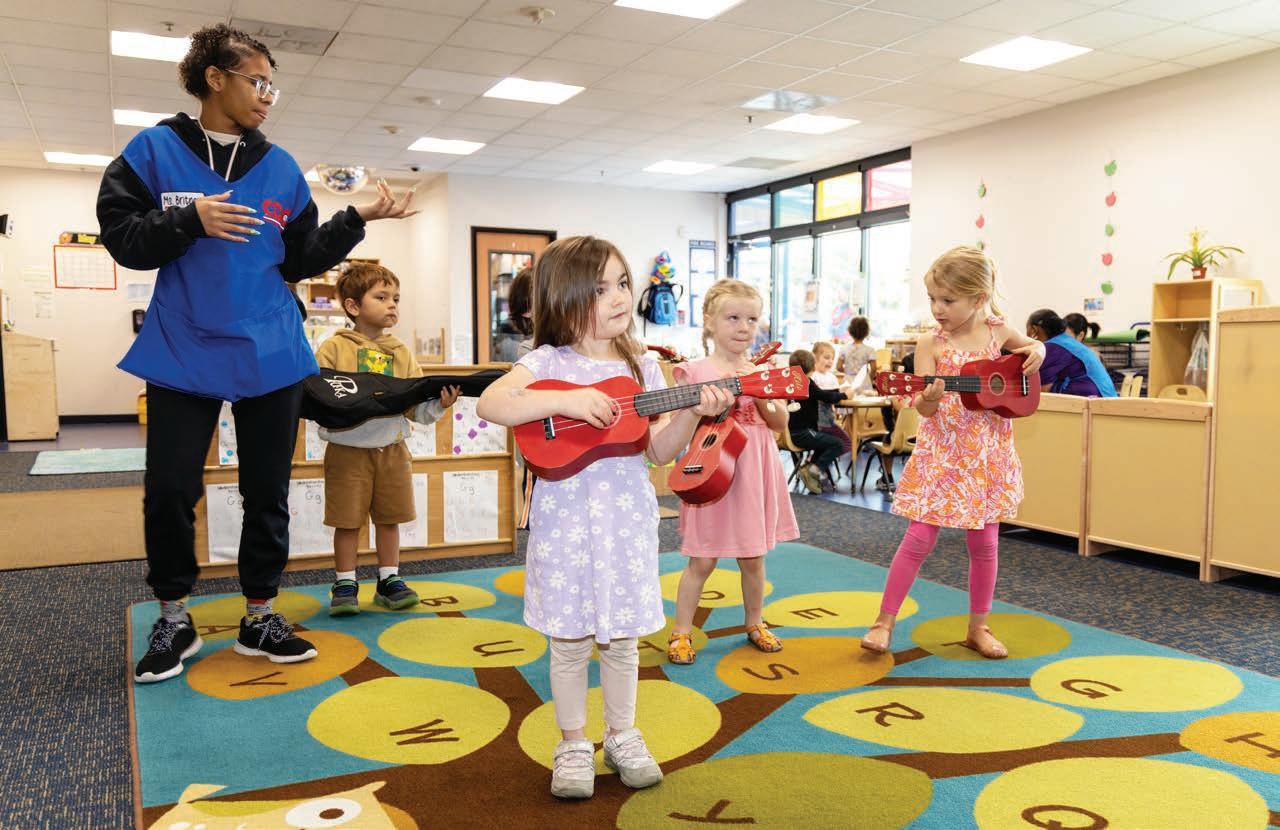
Encourage children to think, reason, question, and experiment
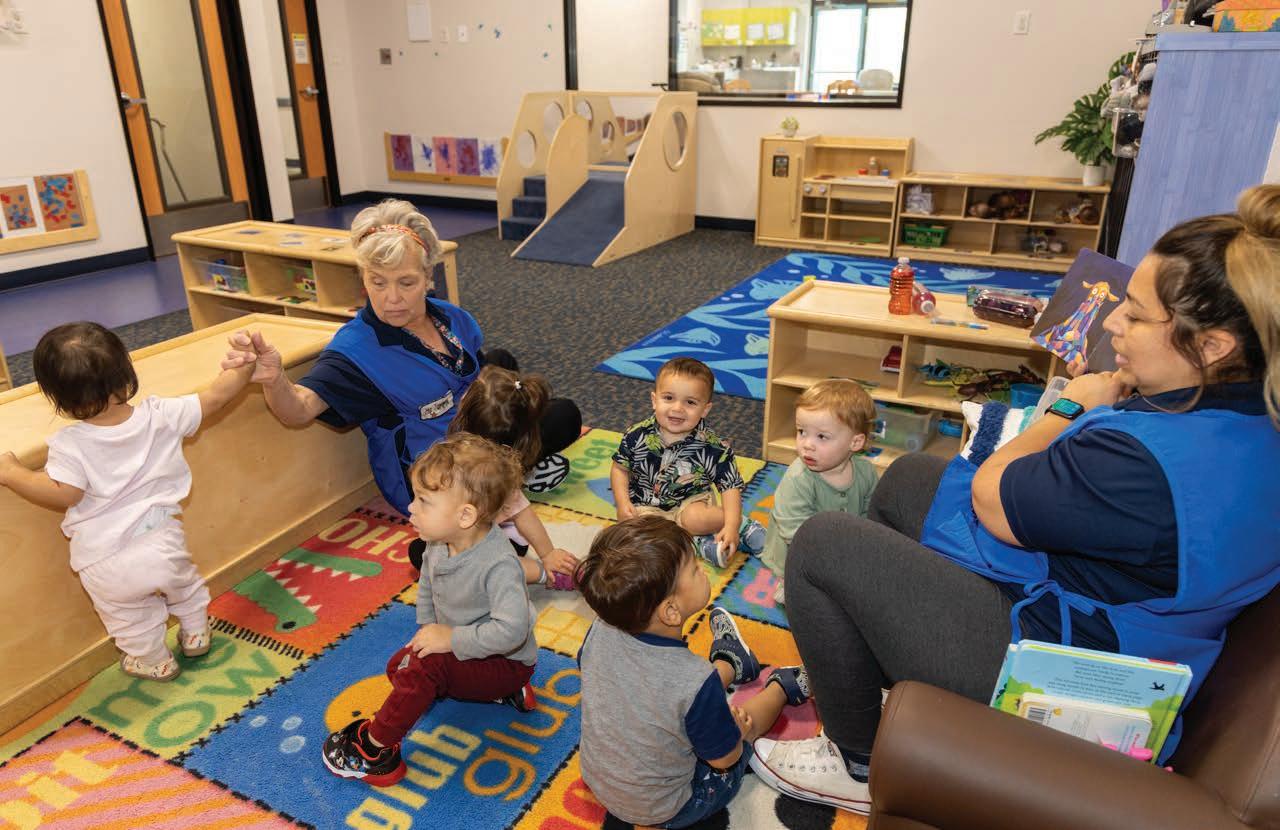
Program Information
Operating Hours: Monday through Friday
7 a.m. to 5 p.m. unless otherwise posted. The Center is closed on all federal holidays and Family Down Days. The center offers quality developmental care to children ages six weeks to 5 years of age. Curricula are planned for each individual age group.
Exercises: During base wide exercises, extended hours of care may be provided at the direction of base leadership. Children picked up after the posted closing time will be charged an additional fee. To ensure we are mission ready the CDC actively participates in base exercises. When designated to do so, all those in the program are required to follow emergency protocol procedures.
Full Time Care: The full day program offers childcare Monday through Friday for full time working parents. Full day programs open daily
at 7 a.m. and close at 5 p.m. unless otherwise posted. Children must be picked up before the designated closing time. Children not picked up by the Close of Business will be assessed
$2.00 for each minute late after the 10-minute grace period, per family left at the program after closing time (5:10 p.m.). The fee will be added to your next week’s bill and/or charged the next duty day using the credit card on file in our CYPBMS payment system. Parents wishing to sublet their child’s space should speak with the front desk staff for assistance.
Hourly Care: Hourly care is offered during normal business hours Monday through Friday. Reservations may be made for hourly care by calling the Center at (310) 653-6800/6804. All registration paperwork and CYPBMS enrollment must be completed before children arrive for Hourly Care.
Fees & Payments
Background: Section 1793 of Title 10, United States Code, requires the Department of the Defense (DoD) prescribe uniform fee regulations for military child development programs (CDP). Fees are based on total family income (TFI) and shall apply to all children who attend on a regular basis. Department of Defense Instruction (DoDI) 6060.02, “Child Development Programs” dated September 1, 2020, establishes the DoD fee policy. The DoDI requires the Assistant Secretary of Defense for Manpower and Reserve Affairs (M&RA) to publish fee ranges on an annual basis. Air Force Instruction (AFI) 34-144, Child and Youth Programs, 2 July 2019, paragraph 9.4 outlines additional Department of the Air Force (DAF) specific requirements. The fee ranges for School Year are to be used by DAF Child Development Centers (CDC), School Age Care (SAC) and Family Child Care Subsidy (FCC SUB) programs. All CDC patrons, regardless of their income category, must provide income documentation. Families are not permitted to automatically elect to enroll in the highest fee category. Failure to provide the required information will delay the processing and approval and or continued use of child care services. The CDC program weekly fees are based on a typical Monday-Friday operation with a minimum of 50 or more hours per week. TFI must be verified each fee year and adjusted if applicable.
Determining Total Family Income (TFI)
TFI must be verified each fee year and adjusted if applicable. TFI will be completed through CYPBMS. DoD Instruction 6060.02 provides the definition of TFI and the income included for consideration.
Child and Youth Program Business Management System (CYPBMS)
All payments for CDC/SAC/YP must be processed in CYPBMS with the exception that the YP Snack Bar may accept cash payments. All other payment systems will not be utilized in CDP. Payment frequencies fees (i.e., Weekly, Bi-Weekly, Bi-Monthly, and Monthly) for CDC will be approved in CYPBMS:
• Weekly – invoiced every Sunday payment on Monday – late payment fee assessed as of Thursday
• Bi-Weekly – invoiced every other Sunday after the GS payday – payment every other Monday after GS payday – late payment fee assessed as of Thursday
• Bi-Monthly – invoiced every 2nd and 16th of each month – payment on 2nd/3rd and 16th /17th of each month – late payment assessed as of the 6th and 20th
• Monthly – invoiced on the 1st of each month – payment on the 2nd – late payment assessed on the 6th
Late Payments
Late payment fees for CDC and SAC Before/ After: $5 per day per family based on the above timelines.
The Los Angeles Air Force Base Child Development Center follows and implements the Department of the Air Force Guidance Child Development/ School Age Care/ Family Child Care Subsidy Programs School Year (SY)
Eligibility & Placement
Eligibility:
Childcare eligibility is contingent on the status of the sponsor. Eligible patrons include active duty military, DoD civilian employees either NAF or APF, Air National Guard or Air Force Reserve military personnel on active duty or inactive duty training status, active duty Coast Guard members, combat related wounded warriors, surviving spouses of military members who died from a combat-related incident, those acting in loco parentis for the dependent child of an otherwise eligible patron, eligible employees of DoD contractors, and others may be authorized on a space available basis. In the case of unmarried, legally separated parents with joint custody or divorced parents with joint custody, children/youth are eligible for childcare only when they reside with the eligible sponsor at least 25 percent of the time in a month. Reference DoDI 6060.02, Child Development Programs.
Sublet/Rental:
The Child Development Center (CDC) offers families, who have full time space at the CDC the opportunity to sublet their space. Only weekly spaces (Monday-Friday) will be available to sublet. Parents can sublease and rent spots through the Kinderspot App to eligible patrons.
Priority Status:
Individual priority is verified at the time of enrollment and annually thereafter. You can find the priority matrix on the LAFSS.com/CDC website.
MilitaryChildCare.com (MCC)
The waiting list for full time care for children 6 weeks through 5 years of age is maintained by MilitaryChildCare.com and monitored by the CDC by the Director and Assistant. MilitaryChildCare.com (MCC) provides a single online gateway for families to access militaryoperated or military-subsidized childcare options worldwide across all Services. The site enables families to create a household profile, conduct childcare searches, submit requests for care, and manage their requests at any time and from any location. If parents have any questions, please contact (310) 653-6800/6804. All patrons are required to register on MCC. Placement of children on the waiting list is based on the request date indicated on MCC. Parents who have been notified of a space available for their child have 72 hours to accept or decline. Accepting a space requires parents to accomplish the online enrollment into CYPBMS, and return any registration forms within 48 hours.





Supplanting
Supplanting children can happen for Priority 1.C,
1.D, Priority 2 and Priority 3 if spaces are needed for children on the waiting list in Priority 1.A and 1.B. Families who are supplanted will receive a 45 day later notifying that in 45 days care will no longer be available. The family will have to reregister for care on MCC to be eligible for care.
Child & Youth Programs Business Management System (CYPBMS)
The Air Force Services Center Child and Youth Programs (AFSVC CYP) is excited to announce the Fielding Phase of the Child and Youth Programs Business Management System (CYPBMS).
Additional functionalities include Electronic Sign In/Out at the Front Desk and Mass Messaging capability to keep you better informed of program changes and increase awareness during any emergency event.
CYPBMS is a Software as a Service cloud-based and web browser child care and youth programs management solution. CYPBMS has been successfully tested/piloted at 20 installations DAFwide. AFSVC has received the Authority to Operate.
The Parent Portal Self-Service functionalities include:
• Family Records
• Child Records
• Electronic Fees and Payments
• Program Registration
The on boarding process of CYPBMS can take approximately 10 minutes to build an online profile. To build your online profile, a link is needed, provided by the desk clerks using your personal e-mail address. All payments/ transactions will be processed in CYPBMS.
All children enrolled in the CDC must be enrolled into CYPBMS. Annual renewal requires all families to review the information on the platform for accuracy of program eligibility.
Early Learning Matters
The Early Learning Matters (ELM) curriculum, developed by Purdue University, promotes positive outcomes in all areas of development from birth to age 5 years. It is based on the latest research on child development and best practices in early education and care. ELM offers a comprehensive, developmentally appropriate approach to meaningful learning for all children.
• Whole child focus on skills that bolster school readiness and life success
• Developmentally sequenced activities that embed strategies for individualizing
• Evidence-informed, friendly-to-use resources for classroom staff and families
• Training tools to support direct care staff with different professional backgrounds
At the heart of the ELM curriculum are activity plans that build on children’s pathways of development in five infant/toddler areas and eight preschool areas. The plans support growth and development with a range of active learning opportunities that include careful attention to differences in children’s abilities and interests.
Family Engagement Resources
Supports for engaging families include: What Children Will Learn This Week (for preschool), a list of skills and classroom activities emphasized in a given week; Readiness Starts Early, a set of parenting tips that families can use to reinforce and extend their child’s classroom learning; and examples of portfolio entries that describe a child’s progress in important developmental areas.
Children with Special Needs
Children with Special Needs/IFSP/IEP Children who have been identified with a special need(s) are provided services within CYP when reasonable accommodations can be met.
Children with special needs require more than routine and basic care. This includes Children with or at risk of disabilities, chronic illnesses and/or physical, developmental, behavioral, or emotional conditions requiring additional health and/or related services.
Specialist, and others as determined by the installation convenes in order to determine if reasonable accommodations can be met. If the child is identified with a special need(s) after enrollment, the child’s developmental and/or medical requirements must be reviewed by the CYP Medical Advisor, and the team of experts listed above within 45 days.
Prior to enrolling in any CYP, the child’s developmental and/or medical requirements have been reviewed by the CYP Medical Advisor and a team of experts to include: the CYP Medical Advisor, the Medical Group Exceptional Family Member representative, the AFS Flight Chief, the Flight Training and Curriculum (T&C) Specialist, FCC Coordinator, the Exceptional
Family Member Program Family Support
If reasonable accommodations can be met, an Inclusion Action Plan is developed to provide written instructions concerning how the program will meet the child’s needs, changes to the environment, specialized training, required staff: child ratios, etc. Annually, the Inclusion Action Plan is reviewed by the Inclusion Action Team (IAT); however, if the needs of the child change the IAT conducts the review earlier. The LAAFB CDC follows the Department of the Air Force Child and Youth Programs Inclusion Guide.


Outdoor activities are an important part of your child’s development.
Caring for Children
Daily Activities:
Diverse activities provide for both the care and development for all children. The daily schedule provides a balance of activities that are aimed at developing your child’s creative, cognitive, social, emotional, physical, and language skills. Outdoor activities are an important part of your child’s development. Weather permitting; the children spend time outside daily. If your child is too ill to play outdoors, it is recommended that you do not bring your child to the center. All children are required to go outside during scheduled outdoor time. Appropriate clothing should be brought to the center to meet the needs of the changing weather. It is highly recommended that all children wear closed toed shoes and that they fit appropriately for children to participate actively in the program.
Rest Periods/Nap:
Rest periods or naps are scheduled to follow lunch for ages Pretoddler, Toddler, and Preschoolers. Children are not required to take a nap, but at minimum children must be offered an opportunity scheduled from 12 p.m. - 2 p.m. daily. Children who do not nap will be offered a quiet activity. Infants nap according to their individual schedule.
Clothing, Personal Belongings & Toys:
Please do not allow your child to bring money, food, gum, toys, books, or other possessions into the program. We realize how difficult this may be for some children, but the chances of these possessions getting lost or broken are great. All possessions must fit in a cubby. Children should avoid the use of jewelry (i.e., hoop earrings,
necklaces, and bracelets) as it poses a choking and strangulation hazard during program participation.
Toilet Learning:
Learning to use the toilet is a complicated and developmental process, which involves the integration of the child’s physical, neurological, social, and emotional processes. Until a child shows significant signs of readiness, i.e., verbalization of discomfort, dryness for extended periods, child-initiated willingness to use the toilet, etc. Toilet learning can be stressful for both the parent and the child. When such signs are evident, a cooperative effort will be made between the parent and the caregiver to assist in developing healthy toileting habits.
Health Practices Exclusion & Readmission
The CDC cannot accept children into care who are exhibiting signs of illness. For the health and safety of your child and the other
children in the center, please keep your child home if he/she shows signs of obvious illness or contagious condition. The CDC staff is instructed to always observe for signs and symptoms of illness, specifically at the time of each child’s daily arrival to the center. Children with fever, an unexplained rash, diarrhea, vomiting, open bleeding sores, an inability to participate in CDC activities, or who require a constant one-onone care will not be admitted into the program.
Parents are requested to notify the CDC if their child contracts a communicable disease.
Parents of children who have been exposed to a confirmed communicable condition will be notified by the program.
Medication Administration Procedures/ Emergency Medication
Trained employees may only administer medicine to children enrolled in the full day program. Medication is administered at 10 and 2, or as prescribed by the physician. Because of the
possibility of reactions, parents must administer the first dosage and wait twenty minutes before the child may be signed in. All medications need to be in their original container. The medication prescription label must have child’s full name, physician’s name, beginning and ending dates, dosage frequency, expiration date, and name of medication. No over-the-counter medications, including aspirin or aspirin like products, antihistamines, decongestants, or cough syrup will be administered without approval from a medical authority for the child receiving them. Emergency “as needed” medications for asthma or allergies are accepted and used on an emergency basis. A current and complete Action Plan outlined by the prescribing health provider is required. Parents initial annually to authorize administration of emergency asthma medication and annually authorizing the use of an Epi-Pen. Parents are contacted if it is necessary to administer the medication.
Allergies
Please inform the center of any allergies your child may have by indicating such information in CYPBMS under your child’s information and upload documentation. Food allergies must be verified by medical personnel and suitable food substitutes must be indicated. Photographs, along with allergy information are posted in each classroom to identify those children with allergies. Children’s allergy information is posted in a similar location and the same way in every activity room. Posting allergy information and photos of the children with allergies helps to ensure we meet the individual needs of all our children and reduce the risk of exposure to foods/substances that cause identified reactions.
Hand Washing, Sanitation, Standard Precautions
Good hand washing is the first line of defense against the spread of many illnesses. Proper hand washing is required by all staff, volunteers, and children to reduce the risk of transmission of infectious diseases to themselves and others. Staff and children are instructed in, and monitored on, proper hand washing procedures. Children will wash their hands independently or with staff assistance to ensure the task is completed successfully. Upon arrival, children will wash their hands.
Ointment & Sunscreen
The CDC staff may apply diaper ointment for treatment purposes only. When the child no longer needs the ointment, it will be sent home. Parents need to ensure their child’s first last name is clearly marked on the tube/ box, and that the expiration date is monitored, and ointment replaced when needed. Ointment cannot be a homemade product or nut base. Parents will complete a permission form allowing CDC staff to apply sunscreen for the prevention of sunburn. The sunscreen is purchased by the CDC and has been approved for use by our base Medical Advisor.
The Standard Universal Precautions/Exposure Control Plan utilized by the CDC is designed to limit occupational exposure to blood and other bodily fluids in child development facilities and identify appropriate barriers and measures to minimize the potential for exposure/contact and to reduce the spread of infectious materials.
Transportation of Children & Field Trips
The LAAFB Child Development Center will take walking fieldtrips to various base sites such as the commissary, base clinic, or gym. Annually the Child Development Center has a parade around the base for the Month of the Military Child. Notifications of field trips will be sent via CYPBMS and verbally by staff.

Meals & snacks are served family-style, with a caregiver centrally located at each table to assist children when necessary.
Program Menus/ Meals & Snacks Schedules:
The CDC is certified to participate in the ID CACFP/USDA food program. All meals and snacks are approved and served in accordance with established guidelines. Any child in the center at meal or snack time will be served. All food served is purchased by the program from approved sources and is prepared by the CDC kitchen staff. Parents/children are not allowed to bring food into the program. Meals, snacks, and a limited selection of infant formulas are provided by the program (a list is available at the front desk). The cost of meals and snacks are included in the fees. Weekly menus are posted in the lobby. From time to time, we are unable to obtain the required ingredients; these substitutions will be noted on the posted menu.
• Breakfast: 8 a.m. - 8:30 a.m.
• Lunch: 11 a.m. - 11:30 a.m.
• PM Snack: 2 p.m. - 2:30 p.m.
**Iron fortified Infant Formula or Human Milk if offered to infants outside of the mealtime hours noted. Family Style Dining/U.S. Department of Agriculture (USDA)
Meals and snacks are served family-style, with a caregiver centrally located at each table to assist children when necessary. The staff model proper table manners. Each child is encouraged to serve himself/herself and to try some of every item served. Parents are welcome to come eat with the children.
In accordance with Federal Civil Rights law and U.S. Department of Agriculture (USDA) Civil Rights regulations and policies, the USDA, its agencies, offices, and employees, and institutions participating in or administering USDA programs are prohibited from discriminating based on race, color, national origin, religion, sex, gender identity (including
gender expression), sexual orientation, disability, age, marital status, family/parental status, income derived from a public assistance program, political beliefs, or reprisal or retaliation for prior credible activity, in any program or activity conducted or funded by USDA (not all bases apply to all programs). Remedies and complaint filing deadlines vary by program or incident. Persons with disabilities who require alternative means of communication for program information (e.g., Braille, large print, audiotape, American Sign Language, etc.) should contact the responsible Agency or USDA’s TARGET Center at (202) 720-2600 (voice and TTY) or contact USDA through the Federal Relay Service at (800) 877-8339. Additionally, program information may be made available in languages other than English.
Complaint Form, AD3027, found online at How to File a Program Discrimination Complaint and at any USDA office or write a letter addressed to USDA and provide in the letter all the information requested in the form. To request a copy of the complaint form, call (866) 632-9992. Submit your completed form or letter to USDA by:
(1) Mail: U.S. Department of Agriculture, Office of the Assistant Secretary for Civil Rights, 1400 Independence Avenue, SW, Washington, D.C. 20250-9410;
(2) Fax: (202) 690-7442; or (3) email: Program.Intake@usda.gov.
To file a program discrimination complaint, complete the USDA Program Discrimination
USDA and this program is an equal opportunity provider, employer, and lender.
Positive Guidance & Appropriate Touch
All Child & Youth Program Staff are required to review these procedures as part of orientation and annually thereafter as part of the annual Child Abuse training requirement. (National Association for the Education of Young Children: NAEYC 1B.9 and 1E.1) Additionally, the DAF Child & Youth Programs Positive Guidance and Appropriate Touch Procedures are discussed with families at the time of enrollment. (NAEYC 1E.1)
It is important to understand that strategies and techniques you may have learned as a child or even used in guiding your own children may not be acceptable in the group care setting while working with the children of other families. In addition, some strategies you may use at home with your own children may not be acceptable while interacting with your children who are enrolled/participating in Child & Youth Programs.
We are so happy to have you join the Department of the Air Force (DAF) Child & Youth Program (CYP) Team! To enhance your interactions with children and youth, these procedures outline both positive guidance strategies that you’re encouraged to use as well as techniques that are inappropriate for use by CYP staff.
The Los Angeles Air Force Base Child Development Center implements The Department of the Air Force Child & Youth Programs Positive Guidance and Appropriate Touch Procedures available on the LAFSS.com/CDC website.
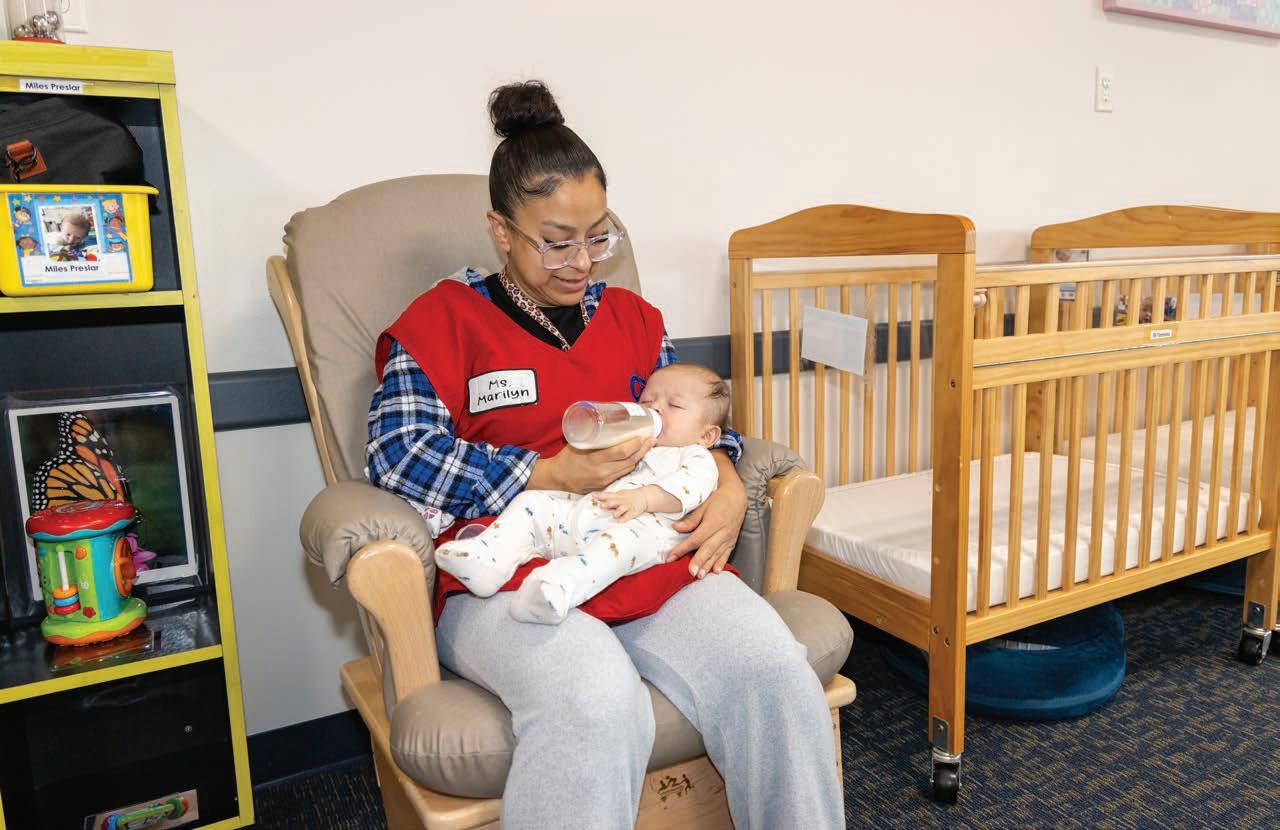
Keeping Families Safe
Closed Circuit Television (CCTV)
LAAFB Child Development Center is using CCTV to monitor public areas to deter crime and to assist Staff and Security Forces in providing for the security and safety of individuals and property of the LAAFB Child Development Center. Any diversion of security technologies for other purposes would undermine the acceptability of these resources for critical safety goals and is therefore prohibited. Legitimate safety and security purposes for CCTV monitoring include, but are not limited to the:
• Protection of individuals, property, & buildings
• Confirmation of alarms
• Patrol of public areas
• Investigation of criminal activity
Child Abuse Prevention and use of Closed Circuit Television (CCTV)
Keeping children safe is everybody’s business. Parents ensure their child’s safety regardless of the setting. Staff are trained annually on child abuse and neglect prevention/identification procedures and reporting procedures. All staff members are required by law to report suspected child abuse or neglect. Staff observing signs of child abuse or suspecting child neglect will report their concerns to the Director or Assistant Director immediately. As part of child abuse protection and for the safety of staff and children, your child may be subject to closed circuit video monitoring and recording as part of their participation/enrollment in the
Child Development Center
Department of Defense National Hotline: (800) 273- 8255
Family Advocacy Office: (310) 653- 6860
Emergency Response
The CDC’s response for most emergencies generally involves either sheltering in, or evacuation of, the building. An exception to this is providing emergency medical care. The CDC conducts monthly fire evacuation drills as required by AFI 34-248, Child Development Programs. The times of the drills are varied to include naptime, early mornings, and late afternoons. In the event of a natural emergency outside the CDC, the children and all other occupants of the building will shelter in designated program areas. If an emergency requires evacuation away from the CDC premises, the program will coordinate transportation and continue care of the children until the children are picked up by an authorized individual.
Visitors, Building Access, and Security
All parents and visitors are required to enter and exit at the main entrance of CYP facilities (except for approved kitchen deliveries). Visitors must
sign in and out, wear a visitor’s badge and be monitored while in the facility. Military personnel with names on their uniforms must sign in but are not required to wear a visitor’s badge. CYP personnel will wear program issued name tags. CYP from other facilities to include AFS Flight Chiefs are required to sign in but are not required to wear a visitor’s badge if they have a name tag.
Entry Access Control System Guidelines and Rules
The Los Angeles Air Force Base Child Development Center is required to implement the use of the Entry Access Control System as directed by Higher Headquarters. This system is part of an Air Force wide initiative increasing the security of the facilities for children, staff, and families. Each family must follow the following rules of the Entry Access Control System while enrolled in the programs. Those who fail to do so will be reported to the SBD 3 Commander and may result in termination of care:
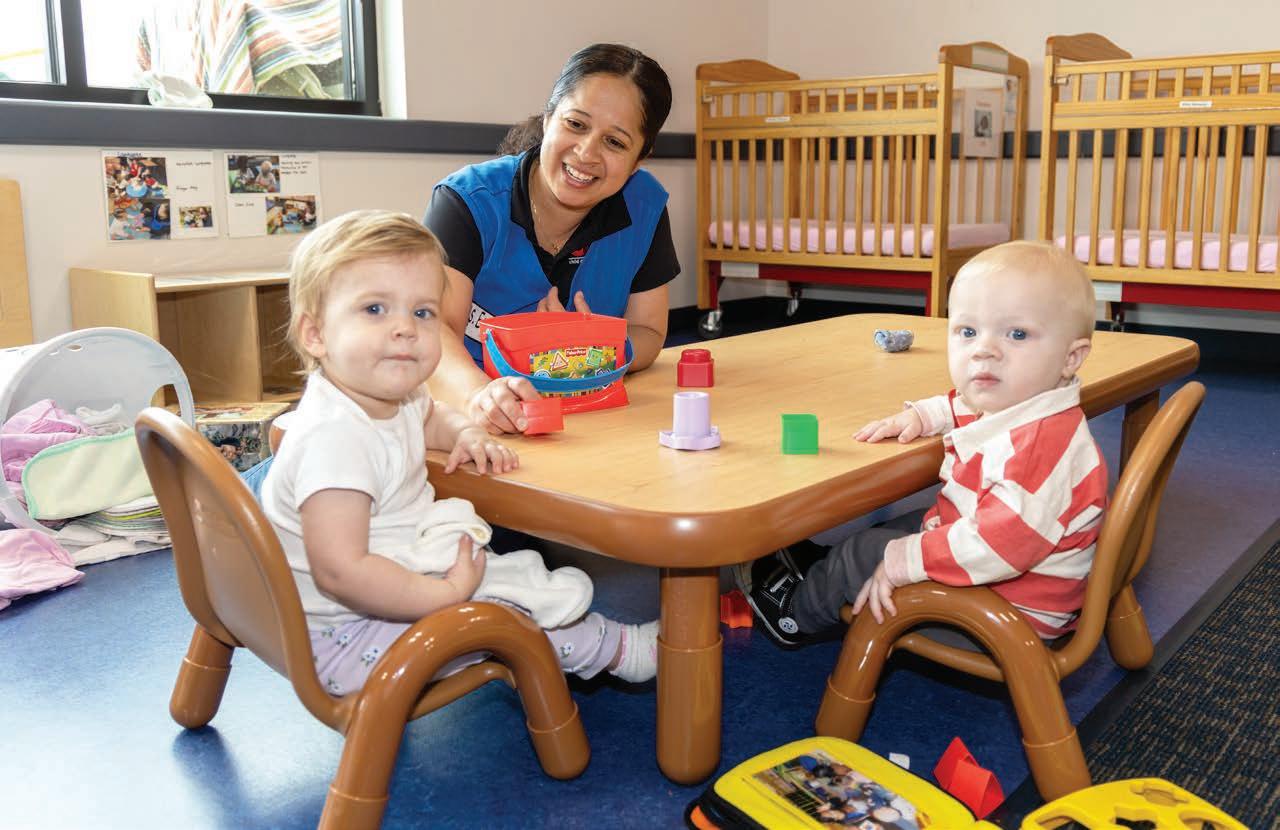
• AUTHORIZED ACCESS:
The entry access control system is located outside of the front door facility, on the left side of the entry wall. Parents will hold their CAC or assigned proximity card against the card reader to unlock the door and enter the facility. CACs and proximity cards are only programed to work Monday- Friday during hours of operation. Visitors and individuals authorized to pick up children on behalf of sponsors without a programed CAC or proximity card will be physically escorted into the facility. Each family enrolled in the facility has been permitted access. Families, staff, and authorized patrons will not be permitted to hold the door open as a courtesy. This process will ensure individuals in the program are always safe and those with authorized access are only entering the facility.
• CAC/PROXIMITY CARD:
Parents and staff must either use their government issued Command Access Card (CAC) or be issued a center proximity card to access the facility.
• DIS-ENROLLMENT OUTPROCESS:
CAC’s and proximity cards will be deactivated upon disenrollment. Proximity cards will be collected for re-programming by the program managers when parents disenroll children from the program.
• LOST/STOLEN PROXIMITY CARDS:
Parent/ Guardians who have lost their proximity card must report it to the CDC administration immediately. A new proximity card will be issued, and families will be charged a $5.00 replacement fee. Should this issue continue more than twice in a fiscal year, it may result in termination of care.
Program Quality & Support
Inspections:
All CYP operated by or for DoD personnel are certified to operate through inspections occurring no fewer than four times a year as required by the Military Child Care Act. Three inspections are conducted locally, and one is a higher headquarters inspection. Local inspections include annual comprehensive health and sanitation inspections, annual comprehensive fire and safety inspections, and a multidisciplinary inspection. Results of these inspections are available for review at the front desk.
Staff Qualifications
The CDC staff are engaged in a professional training program. Prior to working with children, employees are required to complete
the Air Force Orientation Training which covers topics such as child development, health, and safety, creating a learning environment, working with parents, working as a team, and identifying, preventing, and reporting child abuse. Program Assistants are also required to complete a CPR and First Aid course within the first six months of employment.
All Program Assistants are required to complete Virtual Lab School Modules (VLS). The Virtual Lab School (VLS) empowers child care professionals to build their knowledge and improve their practices through a robust online professional development system. Designed for child and youth professionals across all roles and functions, the VLS provides evidencedbased content, demonstration videos, and
practical tools to facilitate high quality care and education.
Family Involvement Opportunities
The 15 VLS Foundational Courses align with the Child Development Associate (CDA) competencies and NAEYC, NAFCC, and CYDAYD standards, covering topics such as safe environments, cognitive development, and family engagement. VLS Focused Topics Courses offer advanced or specialized training in specific subject matter such as supporting children with challenging behaviors, trauma-informed care, creating gender safe spaces, and others.
Parent Advisory Board (PAB)
The Child Development Center has an active Parent Advisory Board comprised of parents and staff. This board meets quarterly to develop an overall program involvement calendar, plan community or enrichment activities, and address parents suggestions, ideas, and concerns.
When parents are involved in the program, everyone benefits. Parents are encouraged to participate in the PAB, in special events, to be involved in decisions about their child’s program, and to assist in creative as well as routine duties. Parents are encouraged to share interests, skills, and aspects of their cultural heritage with the entire class.
Parent Survey and Needs Assessment
The CDC will annually request parent participation in a survey to help us evaluate the CDC program and assess the current community needs.
Termination of care
(AFI 134-144 12.7.5)
The Child Development Center can terminate enrollment for, but not limited to non-payment, child, or youth unable to adjust to program environment, parent failure to comply with
program policy will be asked to be removed with approval from the SBD 3 Commander.
Families enrolled into the program are guaranteed reservation for care each week until the re-enrollment of the new School Year, where each family undergoes priority requalification. To cancel the use of child care at any given time, a TWO-WEEK WRITTEN NOTIFICATION is required, and all fees remaining must be paid in full.
THIS IS A TOBACCO, ALCOHOL, AND DRUG FREE FACILITY.
The base has designated smoking areas at least 50 feet away from the building.
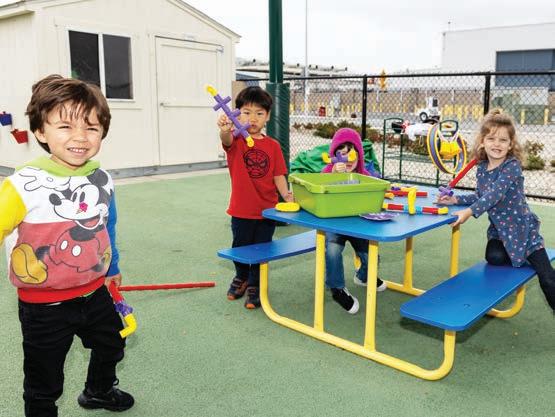
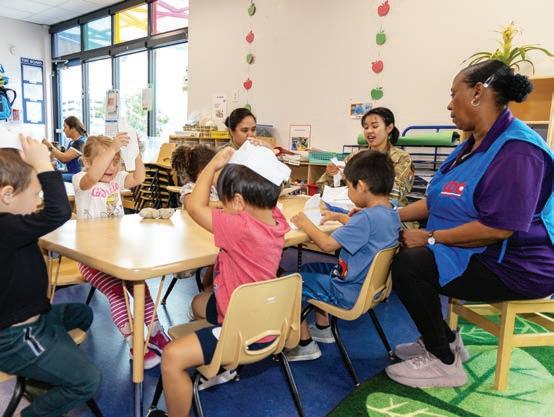
Family Resources
There are times when a family may require specialized assistance to address personal or family situations. There are several on base and off base resources that can provide guidance and support.
Name | Contact Information
• Military & Family Readiness Center (310) 653-5290
• DoD Child Abuse & Safety Violation Hotline (877) 790-1197
• Family Advocacy Office (310) 653-6860
• ID Child Abuse Reporting Hotline (888) 767-2445
• Military Family Life Consultant Child and Youth MFLAC (310) 658-2334 | (818) 987-6344
• Military One Source 1-800-342-9647 www.militaryoncesource.com
• TRICARE Behavioral Health Care (888) 874-9378
• Leaps & Boundz- Behavioral & Social Skills (310) 821-0963
• ECA- Every Child Achieves (800) ECA- 8860
• Connections for Children (310) 452-3325
• Special Needs Advisory Project (213) 427-2709
• USA Child Care Aware (800) 424-2246 www.usa.childcareaware.org msp@usa.childcareaware.org
• Harbor Regional Center (310) 540-1711
• Westside Regional Center (310) 258-4000 / 4013
• State of California https://www.ccld.dss.ca.gov/carefacilitysearch/
• NAEYC https://ais.naeyc.org/search_programs


Child Development Center
Los Angeles AFB, Bldg. 281 (310) 653-6800
Family Child Care Office
Fort MacArthur, Bldg. 425 (310) 653-6802 / 8632
School-Age Program
Fort MacArthur, Bldg. 425 (310) 653-8383
